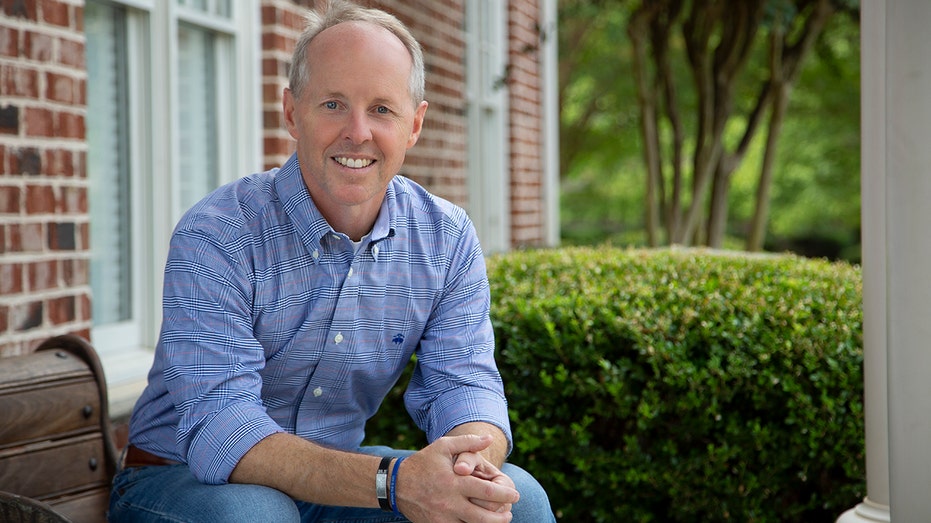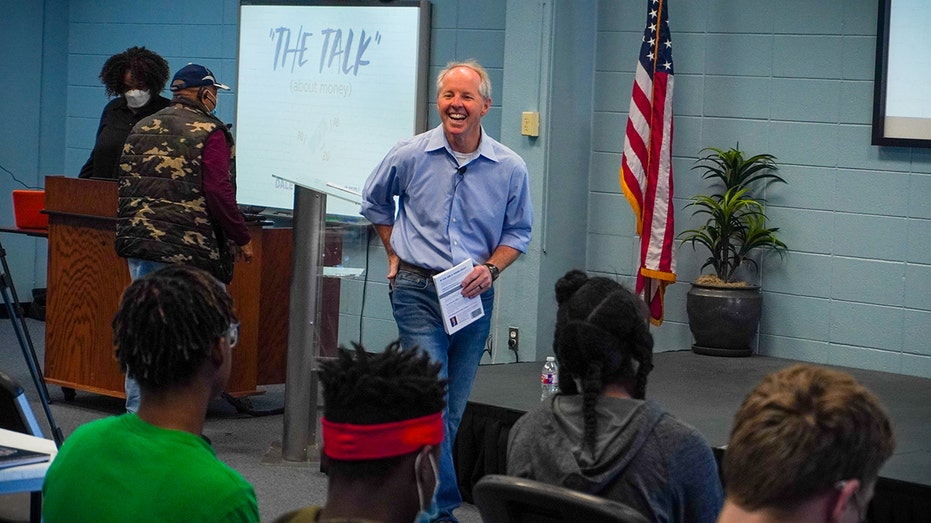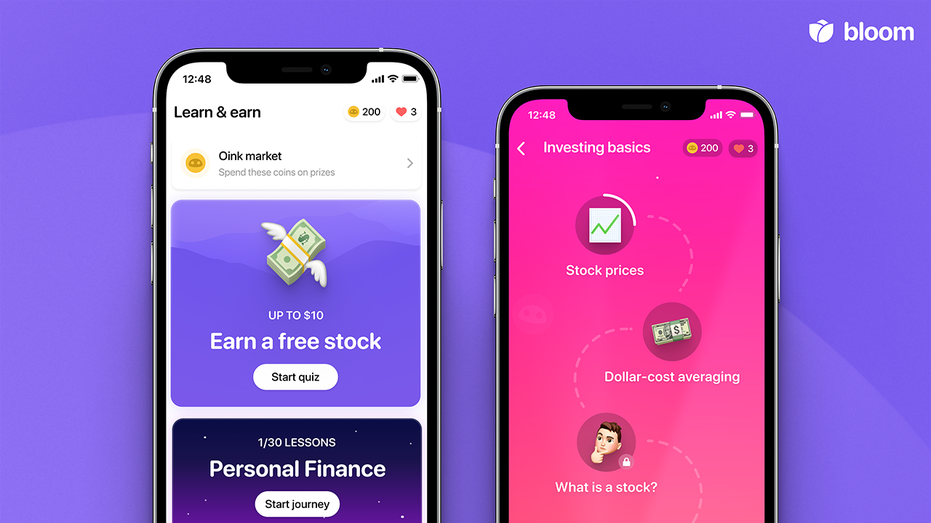Teaching teens about money gets new push
There are books, courses, and apps for that
Gen-Z learning personal finance via social media: Survey
Bank of America preferred banking president Aron Levine weighs in on Gen-Z and millennial investment trends.
Young people are at risk of being sent out into the world without the necessary knowledge to make sound financial decisions that will set them up for future success.
The vast majority of U.S. states do not require high school students to take even one financial literacy course in order to graduate, leaving parents with the responsibility of educating teens on personal finance and investing.
But that’s not happening. Studies show most teens are not being taught money management at home.

Teens are not being taught money management skills in school or at home according to studies. (Photo by: Jeffrey Greenberg/UCG/Universal Images Group via Getty Images / Getty Images)
A recent study by Fidelity Investments found that while seven out of ten teens aged 13 to 17 said they look to family members as financial role models, only 34% reported regularly discussing the topic with their parents.
Stocks In This Article:
"The important thing is for parents to start talking about money with their teens early and often," says Fidelity's VP of Youth Investing, John Boroff. "Our data shows teens who talk about money with their parents are more confident on financial topics."
MOMS SOUND ALARM ABOUT TEACHERS' UNIONS, LEARNING LOSS: ‘WE NEED TO TURN THIS COUNTRY AROUND’
The problem is that a lot of parents aren't confident talking about money, themselves, according to one expert.
Dale Alexander has spent the past 34 years as an employee benefits broker to the education industry. But the Georgia native has ramped up the use of his certified financial planner designation in recent years, finding a new calling teaching young adults about money after his own kids asked him to talk to their friends about the topic.

Dale Alexander, author of "'The Talk' (about money)"
In late 2019, Alexander held a session on money management in his conference room for a group of his kids' friends during Christmas break, which was recorded on Facebook live and went "kind of viral," he told FOX Business.
Since then, he has spoken at dozens of high schools and colleges in multiple states, and wrote a book titled "’The Talk' (about money), A Young Adult's Guide to the ONE DECISION That Changes Everything."
Alexander says that kids often approach him after talks and tell him, "My parents never talked to us about money."

Dale Alexander giving "'The Talk' (about money)" to a group of students.
"Part of that reason is maybe the parents didn't have success financially, or were confused about money, and were just afraid to bring it up to their kids," he says. "They'll talk to their kids about many other important areas of the kid's life — maybe sex or what job career things like that — but money is very seldom talked about in families."
Alexander points his students to Fidelity's Youth Account, and recommends during his talks that each of them download the app to their phones by the end of the day.
EDUCATORS IN ARIZONA CAN BEGIN TEACHING AT PUBLIC SCHOOLS BEFORE EARNING COLLEGE DEGREE
"We know teens learn best by doing, which inspired us to create the Fidelity Youth Account," says Fidelity's Boroff, who notes the company with 40 million customers offers educational articles on its website as well as videos on TikTok, Q&As on Reddit, and quizzes and infographics on the Fidelity app.
Another free investing app created specifically for teens is called Bloom, which has shot to the top of the charts in popularity after only launching a handful of months ago.

Bloom co-founders (L-R) Allan Maman, Sam Yang, and Sonny Mo.
Bloom's three co-founders, Sonny Mo, Allan Maman, and Sam Yang wanted to create something user-friendly and youth-focused after Mo tried to help his brother set up a traditional investment account and was struck by how confusing and overcomplicated it was for teen users.
The Bloom team also knows a little something about keeping young users engaged on a topic: Maman is credited with making fidget spinners go viral in high school.
PROLONGED REMOTE LEARNING LINKED TO A NATIONWIDE DECREASE IN STUDENT ENROLLMENT
"There is a big issue with financial literacy where all these kids either aren't getting the right education, or they're not talking about it at home just because money in general is kind of like a taboo topic around a lot around a lot of households," Maman told FOX Business.
We enable teens to actually started investing with as little as $1, but more importantly, we have a ton of education modules to make learning fun.

Teen investment app Bloom offers learning modules, parental controls, and participation incentives.
Maman says a lot of traditional financial literacy lessons can be drawn-out and boring, so Bloom has developed dozens of easy-to-understand, "bite-sized" lessons designed for young beginners.
"So, we enable teens to actually started investing with as little as $1, but more importantly, we have a ton of education modules to make learning fun," he says.
As an added bonus, Bloom has parental controls available to minimize risks. Some parents, for instance, prefer to limit their kids' investments to exchange-traded funds (ETFs), rather than individual stocks, Maman explained.
GET FOX BUSINESS ON THE GO BY CLICKING HERE
The app has also partnered with online learning service Juni, which offers courses on investing, personal finance, entrepreneurship and an array of other "real world" topics that are often not available to kids in traditional school settings.
The typical age range of Juni students is 8- to 18-years-old, and the company has seen a surge in sign-ups for its lessons since the start of the coronavirus pandemic.





















